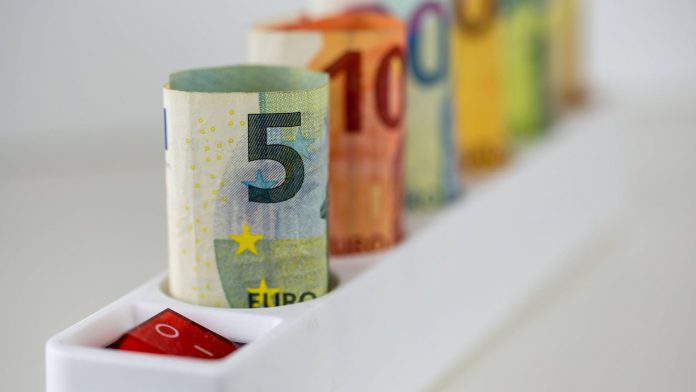2023 went extremely well for EnBW. But according to the forecast, things will not continue like this. Customers also have to dig deeper into their pockets at first.
After a big plus last year, the Karlsruhe energy group EnBW expects a declining result in 2024 due to falling sales prices. Even if the new EnBW boss Georg Stamatelopoulos lists affordability as one of the most important goals of energy supply and says that he has the interests of consumers in mind in the energy transition, they will soon have to pay higher bills.
The customers
EnBW had already announced that it would increase electricity prices by 15.9 percent on April 1st. Stamatelopoulos explained this on Wednesday in Stuttgart in two thirds with the loss of the federal subsidy for network fees. “You cannot expect EnBW to replace state subsidies.” During the energy crisis, the company did not take advantage of the increased prices to pass them on directly. In order to guarantee the security of supply, EnBW purchases in advance and can thus compensate for fluctuations. But the fact that expensive electricity was purchased is now having an impact.
In addition, there would be historically high investments on the way to an affordable energy transition, emphasized Stamatelopoulos. EnBW has more than 5.5 million customers.
The numbers
“EnBW is doing well,” said Stamatelopoulos, who recently moved to the top of the group after the surprising departure of Andreas Schell due to differences of opinion with the supervisory board over corporate strategy. The company is on stable financial footing. “There is no reason for a massive change of course.”
According to 2023, adjusted earnings before interest, taxes, depreciation and amortization (adjusted Ebitda) rose – for the seventh year in a row – by a good 60 percent to 6.37 billion euros. This is primarily due to the “Sustainable Generation Infrastructure” segment. Contrary to what the name suggests, the majority of the result here of around 4.6 billion euros can be attributed to the area of thermal generation – i.e. coal and gas – and trading. Due to increased market prices and fluctuations, the amounts of electricity generated were sold at significantly better conditions compared to 2022, it said.
Thanks to an expansion in wind power and photovoltaics, renewable energies now account for 47 percent of the total installed generation capacity. By 2030, the share of green electricity is expected to increase to up to 80 percent.
Compared to 2022, one must also take into account that this year was marked by the energy crisis as a result of Russia's war of aggression against Ukraine. The fact that Russia stopped gas deliveries had a negative impact at the time and replacement had to be procured from the gas subsidiary VNG for the missing quantities. Again in 2023, the difficulties at the biogas trader BMP Greengas, among other things, had a negative impact on earnings.
Prognosis
Because the electricity generated will probably be sold at lower prices this year, CFO Thomas Kusterer scaled down expectations for 2024. The development of the past year cannot simply be continued, especially in the area of thermal generation and trade. Therefore, EnBW now expects an adjusted result of 4.6 billion to 5.2 billion euros. The development also affects other energy companies. Eon and RWE, for example, now expect a decline in 2023 after a plus.
The investments
Stamatelopoulos explained that due to the very good results, EnBW would once again significantly increase investments in the energy transition in the coming years. Gross investments of 40 billion euros are planned by 2030, around 90 percent of which will be in Germany. According to CFO Kusterer, this is around 22 billion euros net.
According to the CEO, the focus is on, among other things, the expansion of renewable energies and the network infrastructure, but also topics such as charging infrastructure for electromobility and the energy transition at home. “This makes EnBW one of the largest investors in the implementation of the energy transition in this country,” he said. The aim is to “combine the three major overarching goals of energy supply – sustainability, security of supply and affordability – effectively and in the interest of the energy transition and consumers.”
The politic
The EnBW boss emphasized that stable framework conditions are important for the energy transition. The key points of the power plant strategy, for example, are still too vague. At the beginning of February, the federal government announced short-term tenders for ten gigawatts of hydrogen-capable gas power plants. “If the power plants are to come quickly, we need clarity quickly and the first tenders this year,” said Stamatelopoulos. The plan is ambitious, but it can succeed.


